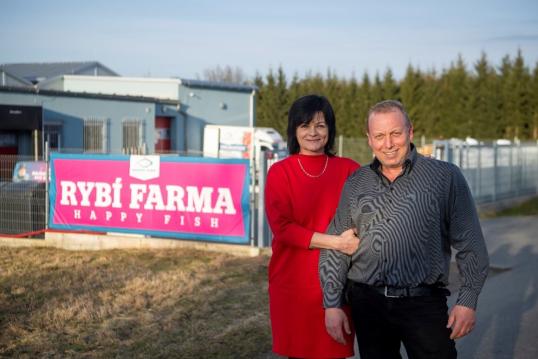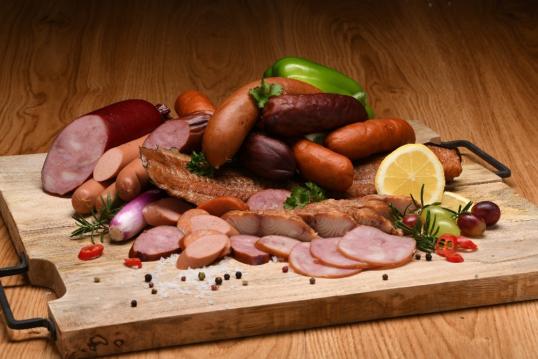
Czech entrepreneur Jan Hora loves a challenge - and took on the mission to get his fellow Czechs eating more fish. As the lowest consumers of fish in the EU, Jan knew he would have to offer something different, which inspired his variety of fish-based products tailored to appeal to the Czech market. Thanks to EU funding Jan’s innovation-oriented company was able to finance its development at various stages.
Serial entrepreneur to fish farmer
Born in southern Bohemia, a region known for carp pond farming, serial entrepreneur and Tilapia sro. founder Jan Hora has always been curious about fish. After setting up several companies, he decided to pursue a modern venture in the otherwise traditional business of carp pond farming.
Tilapia sro. started farming tilapia in the years 2012-2015 to utilise excess heat from a biogas plant for agricultural waste owned by Jan. The heat is used to provide warm water for the farm, as natural water would be too cold for the tilapia.
Making the switch – from tilapia to catfish
After experimenting with both tilapia and African catfish, Tilapia sro. decided to farm exclusively catfish due to competition on the market and less demanding farming conditions. In a market that traditionally prefers meat to fish another advantage is, as Jan explains, that “catfish meat is almost like veal” as its meat is firmer and more suitable for further processing.
The farmed fish is processed into a variety of products ranging from fresh fillets to prepared products resembling traditional Czech meat sausages. The products are inspired by the company slogan 'Let’s teach Czechs to eat fish', a courageous mission in a country with the lowest consumption of fish in the EU of 5-6 kg/capita.
Jan explains: “We operate according to clients’ demand. The fish is harvested and processed one day before the delivery. In combination with our cold chain and hygiene practices, we deliver top quality product.”
Breaking into the Czech market
Tilapia sro. has also cleverly dealt with other constraints in the Czech fish market through its promotional activities. The first being seasonality and traditions around eating fish: in the Czech Republic peak fish consumption is at Christmas when Czechs traditionally eat carp. The company addressed this with innovative marketing throughout the year, with a variety of fish products and species.
For example, carp, a Czech favourite, has a lot of small bones. In response, Tilapia sro. sells the fish using the slogan ‘ryby bez kosti’ (fish without bones) and made this their website address to attract customers.
Competing with traditional meat products is also a challenge for the company. As part of their product development, they have made fish meat products which resemble popular smoked meat products, particularly various kinds of sausages.
Getting creative and scaling up
Running a fish farm is not always easy, and Tilapia sro. had to develop other marketing methods when their first experiences selling through supermarket chains were not profitable due to heavy competition from substitute products. They adapted and decided to market directly to children through inclusion of child-friendly fish products in school lunches, to encourage future generations of fish consumers. The company also opened two shops with EU funding support and expanded distribution to work with 15 partner shops and an internet platform.
The European Maritime Fisheries Fund (EMFF) supported Tilapia sro. at various stages of its development with 16 separate operations. These ranged from financing for farming equipment, processing machines, transportation and furnishing of retail shops.
Jan shared his experience: “My experience with EMFF procedures is very positive and we shall certainly apply again when further expansion will be considered.”. Thanks to the received support, Tilapia sro. was able to scale up and be a regional example for successful non-traditional production.
More information
Social media
https://www.instagram.com/happy_fish_tilapia/
https://www.facebook.com/HappyFishTilapia/
Details
- Publication date
- 5 September 2024
- Author
- Directorate-General for Maritime Affairs and Fisheries







